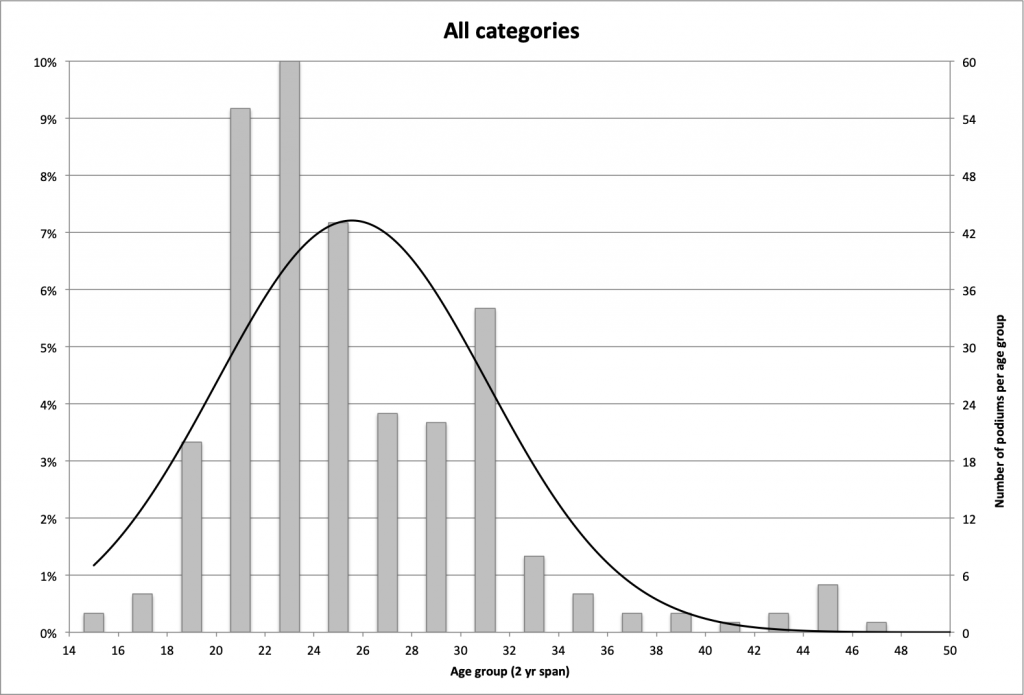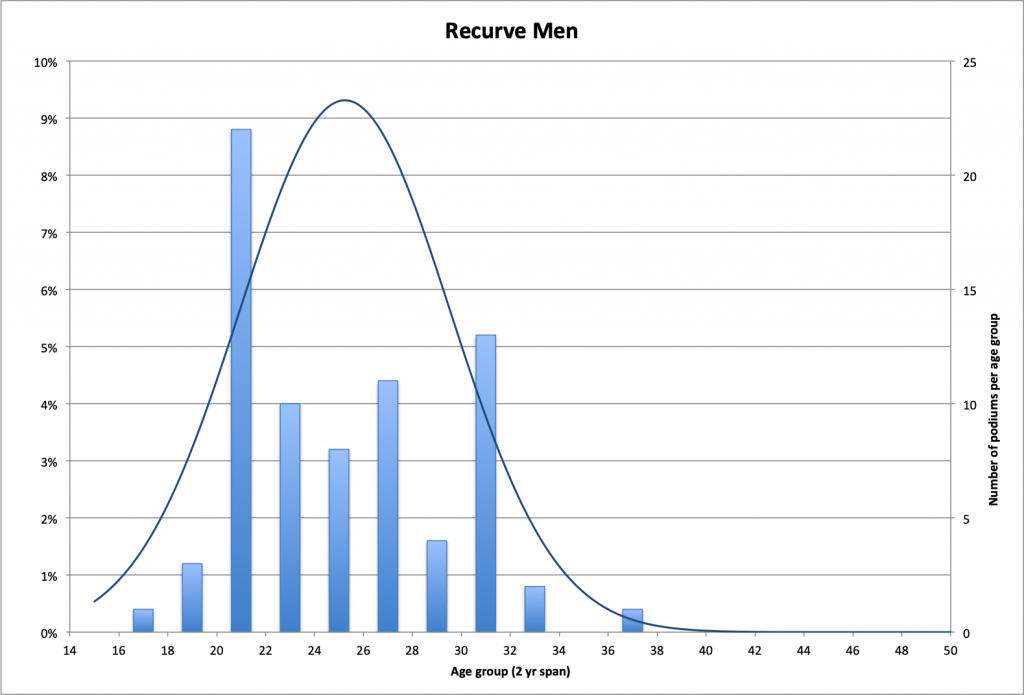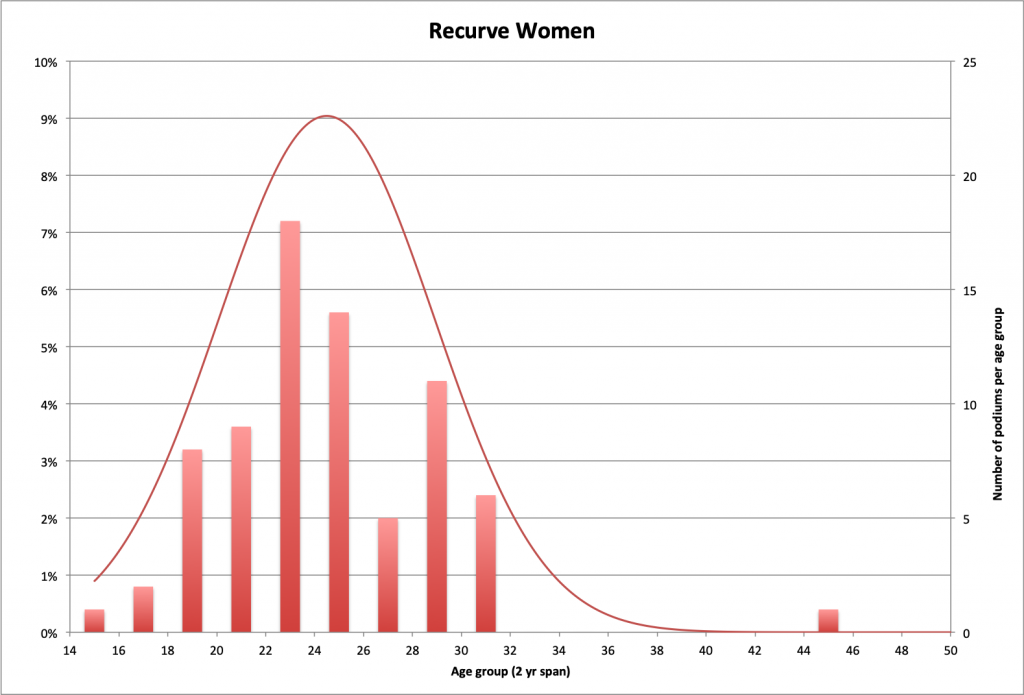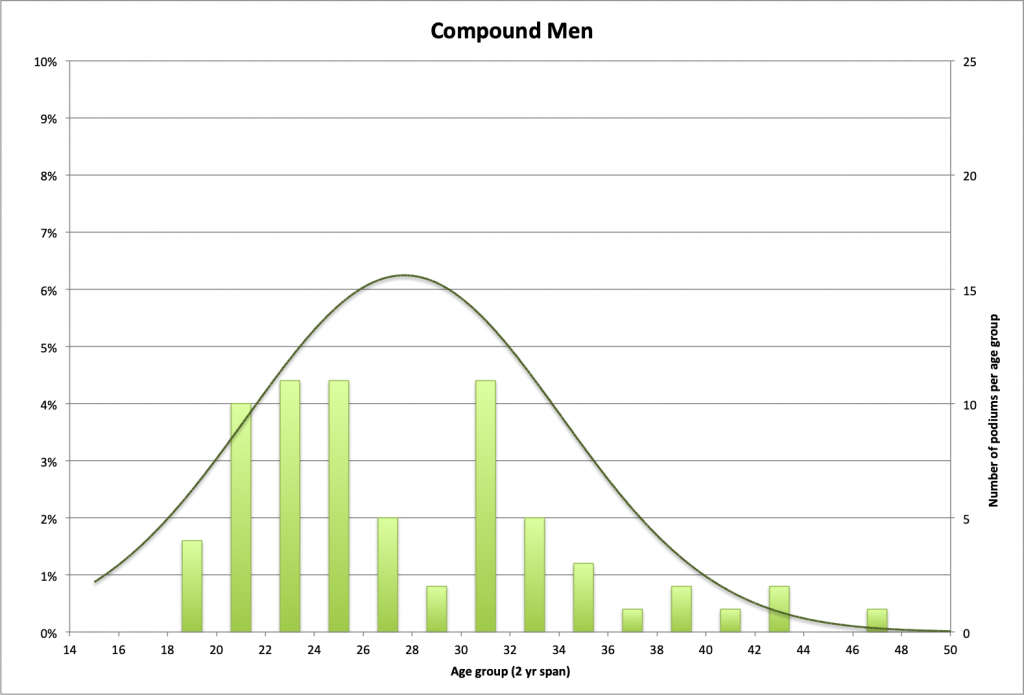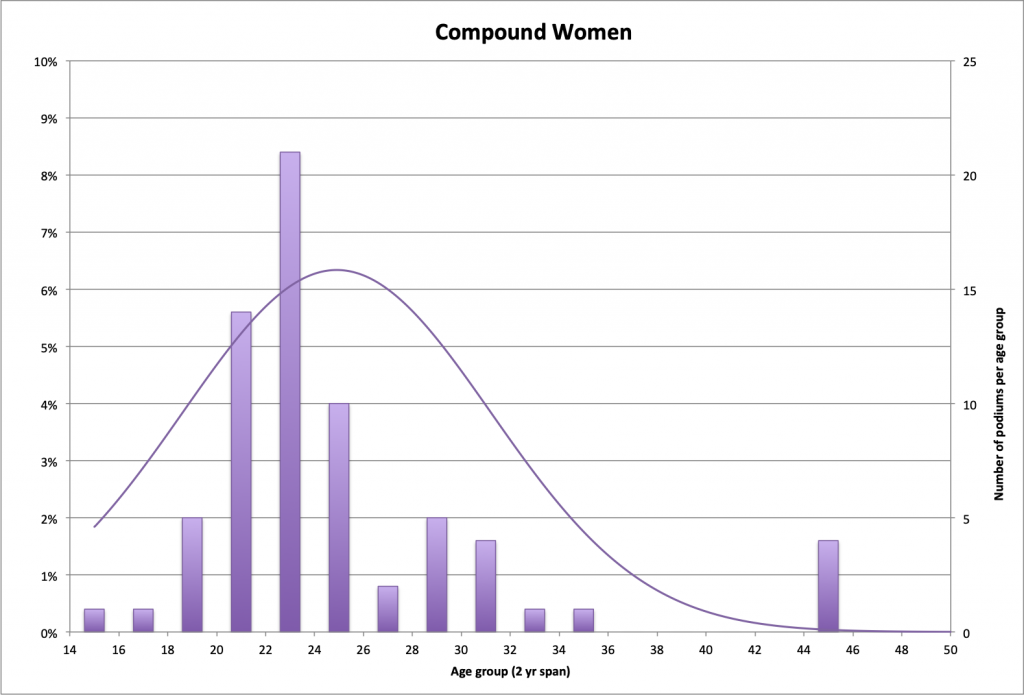Author: Emiel Custers
Date: August 5, 2020
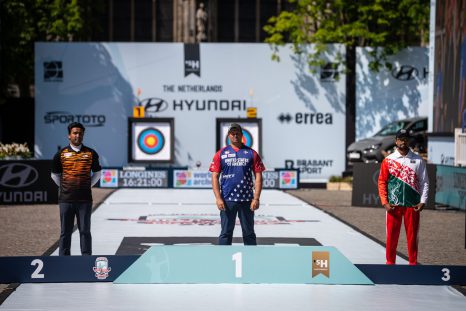
How Old Is An Archery Medallist?
Foto credits:
Pridex Media Content Pool
So people that know me a little bit, know I’m a sucker for numbers. That’s one of the reasons archery, like many other sports, appeals to me. Archery is objective, archery is measurable and in that sense, fair.
In my long lasting desire to put everything in life in order, to make lists and to analyse, I used some spare time during this COVID-19 lockdown situation to analyse some data I hadn’t looked upon before. Like many researches, it all started with a question. In this case the question that popped-up in my mind was “How old is an archery medallist?”. Specifically: an individual medallist on international World Archery outdoor events in all four senior categories, men and women, recurve and compound.
To find the answer to this question, I dug back into my big pile of results and decided to look at data from tournaments shot in the outdoor seasons of 2016 to 2019. In total, this accumulated to 26 tournaments1 and 288 awarded medals.
Research
It took a while collecting all the data. Since the result books are quite extensive though, finding birthdays of medallist is fairly easy. After collecting and organising the data, I did some quick calculations. Here is a brief overview of the results I’ve found:
Unique medallists: 138 (2.09 medals per medallist)
Average age: 25.5 yrs (std. dev.: 5.5 yrs)
Some outtakes:
“The Sara Lopez” factor
The Compound Women’s category is definitely peaking in the early twenties, between ages 20 and 24. From the 69 medals that make up this bar chart, a whopping 13 (10G, 0S, 3B) are won by the current World nr. 2 Sara Lopez from Colombia. Considering the fact that she started racking-up individual podiums as early as 2013, earlier data would probably pull the average age a little more down.
Recurves Golden Boys
The first peak in the Recurve Men’s category can be seen in the very early 20’s. Almost a third of the medals are won by archers aged 20 to 22 (22 out of 75). Almost half of these where won by two archers. Korea’s Lee Woo Seok took 6 medals in his first two full seasons on the tour in 2018 and 2019. (Yes, he already was on the golden Korean team at the World Cup in Medellin 2015. But in that year they sent a ‘B’-team to Colombia, since the ‘A’-team was doing the Rio Test Event the week after). The second one is Steve Wijler from the Netherlands, who won a total of 4 medals in his first two seasons (2017 and 2018), after blasting to the scene winning gold at his first ever World Cup in Shanghai.
The 30’s are the new 20’s
Both Men’s divisions suddenly peak again in the early thirties. 24 out of 144 medals where won by archers between the ages 30 and 32. Archers like Im Dong Hyun from Korea, who in 2017 suddenly came back to the international scene, scoring three podiums and finishing the season off in style on top of the podium at the World Outdoor Championships in Mexico. Or USA’s Brady Ellison, who turned 30 late 2018 and took 5 podiums (3G, 0S, 2B) in 2019 (one of his best seasons to date), including the biggest crown at the WAOC in ‘s-Hertogenbosch, the Netherlands. A crown that was missing on his endless list of accomplishments (It should be noted that the 10+ medals Brady won pre-2016 would probably balance the scale a little more). Other notable archers (aren’t they all?) winning multiple podiums just after turning 30; Braden Gellenthien from the US and Italy’s Mauro Nespoli.
Compound’s Golden Oldies
Medalling after your fourties? Ask Reo Wilde (USA), Patrick Coghlan (AUS), Esmaeil Ebadi (IRI), Sophie Dodemont or Dominique Genet (both FRA) how that feels.
Tan Ya-Think she will ever win gold (again)?
One of the most decorated archers in this research must be Tan Ya-Ting from Chinese Taipei. Ten medals won over four seasons puts her T2 together with Korea’s Kim Woojin. What is more notable though, is that non of these 10 medals where golds (0G, 2S, 8B). Looking back at her World Archery profile, a single individual gold medal is seen, first place at the World University Championships in Poland (2014). Hopefully those 13 gold medals in team and mix-team make up for that. Will Tan Ya-Ting ever win that individual gold medal?
Conclusion
So how does this data compare to other sports? Are archers winning young? Or are they peaking late? To find the answer, I’ve compared my data to a research I’ve found conducted by The Stats Zone2 on the average age3 of medal winners at the Olympics4. I will not summarise the whole research, but instead just take out 2 key points.
On average age for men and women, the research shows ages 26.2 for men and 25.2 for women. This is fairly comparable to the archery data of 26.4 and 24.7 years respectively.
Looking at the sports graph, the TSZ research puts archery on an average age of 24.7 years old. Since archery at the Olympics is recurve only, we can compare this to the 24.9 years my research shows. And with an average age just below 25, archery ranks as the 12th youngest sport of 43 ranked, very comparable with table tennis.
Notes
1) 2016: WC Shanghai (CHN), WC Medellin (COL), WC Antalya (TUR), EAOC Nottingham (GBR), OG Rio de Janeiro (BRA). 2017: WC Shanghai (CHN), WC Antalya (TUR), WC Salt Lake City (USA), WG Wroclaw (POL), WC Berlin (GER), WAOC Mexico-City (MEX). 2018: WC Shanghai (CHN), WC Antalya (TUR), WC Salt Lake City (USA), WC Berlin (GER), PAC Medellin (COL), EAOC Legnica (POL), AG Jakarta (INA). 2019: WC Medellin (COL), WC Shanghai (CHN), WC Antalya (TUR), WAOC ‘s-Hertogenbosch (NED), EC Minsk (BLR), WC Berlin (GER), TE Tokyo (JPN), PAG Lima (PER).
2) https://www.thestatszone.com/archive/olympic-sports-how-does-peak-age-vary-13812
3) It’s unclear how the average age in TSZ’s research is calculated. In my research, the age on which the athlete wins is calculated by dividing the day-age by 365.25. Example: winning a medal 3 days before your 25th birthday will give you an age of 24.99. In the TSZ research, it looks like the medal winners are shown with year-age, the same athlete as in the example before will still have the age of 24, even 3 days before his 25th birthday. On estimate, assuming that birthdays are well divided over the year, this will give my research a six months higher average age.
4) Data of Olympics 1992-2012. All athletes winning a medal are taken into account. In case of individual athletes winning more than one medal, the age at each medal is used. For team sports, the age of every team-member is used.





